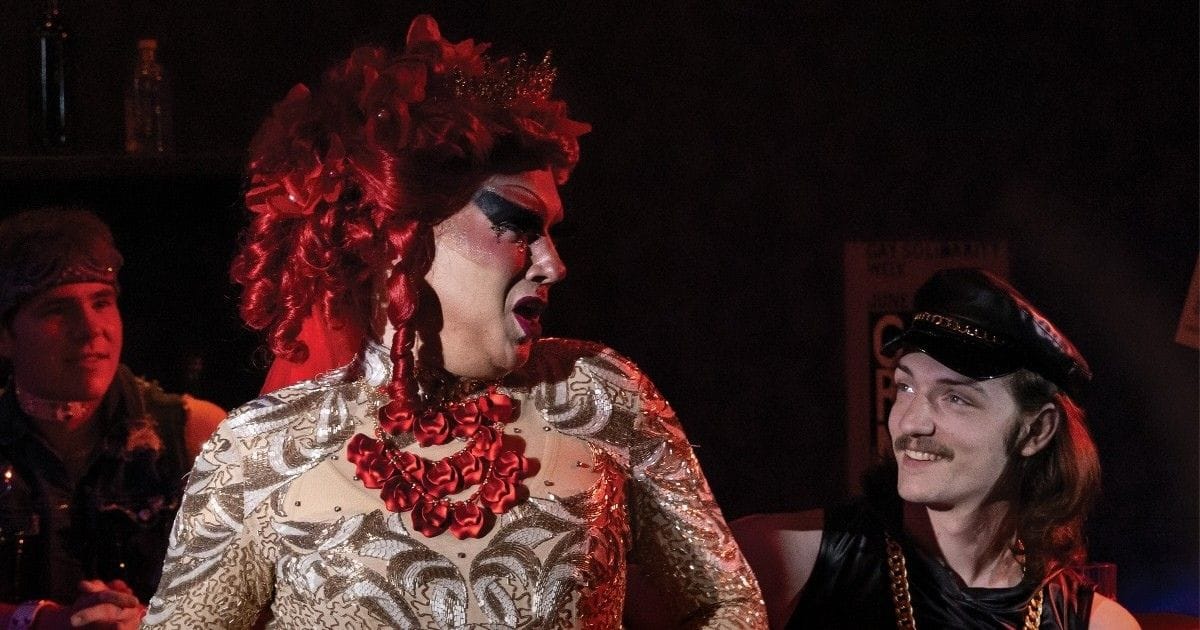The actor discusses portraying the iconic drag queen in Vintage Theatre’s production and why the story feels more relevant than ever.
Harvey Fierstein’s Torch Song plays through June 29 at Aurora’s Vintage Theatre, and OnStage Colorado caught up with Star Ilalaole, who plays Arnold in the play. A trans woman, Ilalaole brings a new twist to the character in the play, which is being staged for the first time in Colorado.
This interview has been edited for length and clarity.
What drew you to the role of Arnold in Torch Song?
As a proud trans woman and part of the LGBTQ+ community, it’s very hard to find roles where we can fully be ourselves while showing our talents. I’ve been doing theatre in Denver for almost 10 years, and when the Torch Song auditions came up, I thought, “Wow, for once there’s a show that’s pretty much an autobiography of things I’ve experienced in my life, just a little differently.” It melded a lot of different talents I have into one character – combining my drag experience with acting in a very authentic and vulnerable way.
How do you connect with Arnold’s search for ‘a husband, a child, and a pair of bunny slippers that fit?’
Arnold wants a lot of things – he’s a dreamer, though I’m not sure he’s good at manifesting because he can be his own saboteur. He’s searching for love and companionship, something he struggled with regarding his father, and after his father died, he’s struggling with his mother. Arnold is so complex because he’s trying to navigate life with so much emotion, while the people around him aren’t navigating life that way. There’s a lot of tension because he just walks through life differently.
The play is set in the 1970s and ’80s during pivotal times for LGBTQ+ communities. How does that historical context inform your performance?
I definitely know the history of the AIDS crisis, ballroom culture, the Stonewall Riots and figures like Marsha P. Johnson. It’s really important for queer people to know their history, and this play puts it in front of people’s faces, giving them a stripped-down look at what life was like and why it was so difficult and traumatizing. We lost so many people because of the AIDS crisis, riots and murders. I’m happy to be part of that history lesson because I think it’s important for queer people to be educators.
How does this story resonate in 2025?
One of the first things our director Tom Bruett said was, “This may be considered a period piece, but it doesn’t come across that way.” The issues the show explores – being in love, having partners, relationships with family and chosen family – are very relevant today. Our director allowed me to approach Arnold through a trans lens, which makes sense with the complexities Arnold deals with. He talks about “What if I was a woman?” when discussing his relationship with Ed, who marries a woman.
With trans people being shut out of medical insurance, name changes, and so many things being written against trans people almost daily since this administration started, I think our interpretation is more relevant now than it was in the ’70s and ’80s.
Can you talk about the complex relationship between Arnold and his mother?
We spend the entire second act in fight or flight mode – it’s backhanded compliments, insults, questions and long-winded answers. But they really do love each other; they just come from different places and times. It’s hard for Ma (played by Diane Wziontka) to get out of her comfort zone to understand where Arnold is coming from.
There are intense moments where Arnold gives it to his mother: “You’re not going to treat me this way, and if you aren’t going to respect me, then you don’t need to be here.” Arnold hasn’t even told his mother about adopting a son, which gives the audience a glimpse of him not trusting her enough to share intimate parts of his life.
What collaborative choices did you and director Tom Bruett make to bring fresh perspective to this character?
The biggest thing is the costumes. The costume designer worked with the director and myself – if this person is trans or gender fluid, we want the clothes to reflect that. I’m wearing things that are gender neutral or feminine-specific, which makes me feel comfortable and gives the audience the idea that this character is living in a cloud of fluidity.
In the ’70s and ’80s, Arnold wouldn’t announce “Hi, I’m Arnold, and I’m a trans woman” – it’s about survival. We only see the feminine state in private moments, like in the dressing room or apartment.
What do you hope audiences take away from Arnold’s story?
Arnold’s strength – he’s one of the strongest people I know because he puts up with so much from every direction. Even in the most vulnerable parts, he remains strong. His authenticity and boldness of “I am who I am, and I’m not going to change for you” is so important right now.
During Pride celebrations, there are still so many moments of heartbreak and loss. One of the biggest things we can do as a community is be ourselves and be the most authentic versions of ourselves, because that’s what combats hate. They want us to hide and wither away, but Arnold’s authenticity, bravery and resilience show us how to go out and get the life we can with what we have.
Alex Miller is editor and publisher of OnStage Colorado. He has a long background in journalism, including stints as the top editor at the Vail Daily, Summit Daily News, Summit County Journal, Vail Trail and others. He’s also been an actor, director, playwright, artistic director and theatre board member and has been covering theatre in Colorado since 1995.



Leave A Comment